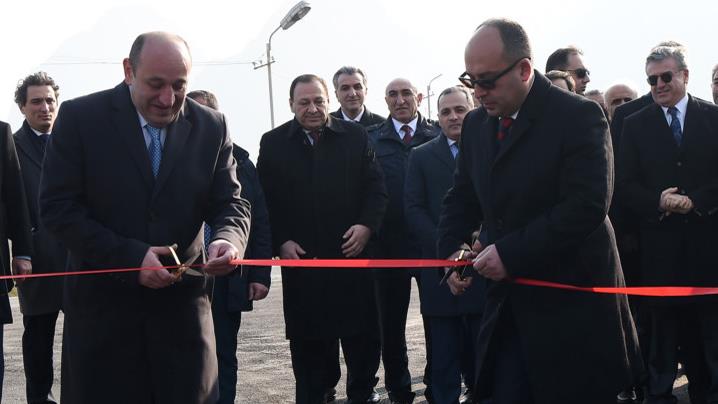12/18/2017 12:00:00 AM - 9:19
Code: 671
Print
Share
Armenia Inaugurates Free Economic Zone on Iran’s Border
.jpg.jpg)
Financial Tribune
Armenian Prime Minister Karen Karapetyan attended the opening ceremony with Minister of Economic Development and Investments Suren Karayan, alongside Iranian Ambassador to Armenia Kazem Sajjadi as well as officials and businessmen from both countries.
“Creation of the Free Economic Zone in Meghri is important for the reason it is situated on the Iranian border, which will serve as an additional impetus for intensification of trade-economic relations between the two countries, thus reinforcing the existing cooperation,” Karayan was quoted as saying by the website of Public Radio of Armenia.
The zone will embrace a wide framework of spheres, including agriculture, manufacturing industry, trade, cargo shipment and storage economy and tourism among others.
Given its geographical position, commercial and logistical capabilities as well as Armenia’s multi-sector preferential trade regimes, the free zone can become a bridge between Iran, the Eurasian Economic Union and the European Union. It is also expected to strengthen economic ties with Iran, Armenpress reported.
Companies operating in the Meghri FEZ will be exempt from profit tax, value added tax, excise tax and customs fees, paying only income tax. Armenian officials expect the zone to attract 50-70 companies in the coming years, investing a total of $100-130 million and creating more than 1,500 jobs.
“The launch of the Meghri Free Economic Zone will contribute to increasing the trade turnover volumes between Armenia and Iran, exchanging experience with Iranian free economic zones,” said the Iranian envoy.
Trade between Armenia and Iran grew during the 10 months of 2017 to $211.4 million, up 6% from $199.4 million in the corresponding period of last year. Exports to Iran from Armenia during the period stood at $66.9 million, up 2.3% year-on-year. Exports to Armenia from Iran stood at $144.4 million, up 7.8% YOY.
Armenia’s exports to Iran include meat, paper, steal, mechanical and medical equipment, coffee and mineral water while Iranian exports to Armenia include natural gas, bitumen, oil, petroleum products, household products, fertilizers, glass, fruits and vegetables.
Since Armenia’s borders with both Turkey and Azerbaijan have long been closed due to the Nagorno-Karabakh conflict, Iran is one of the only two conduits for landlocked Armenia to the outside world.
